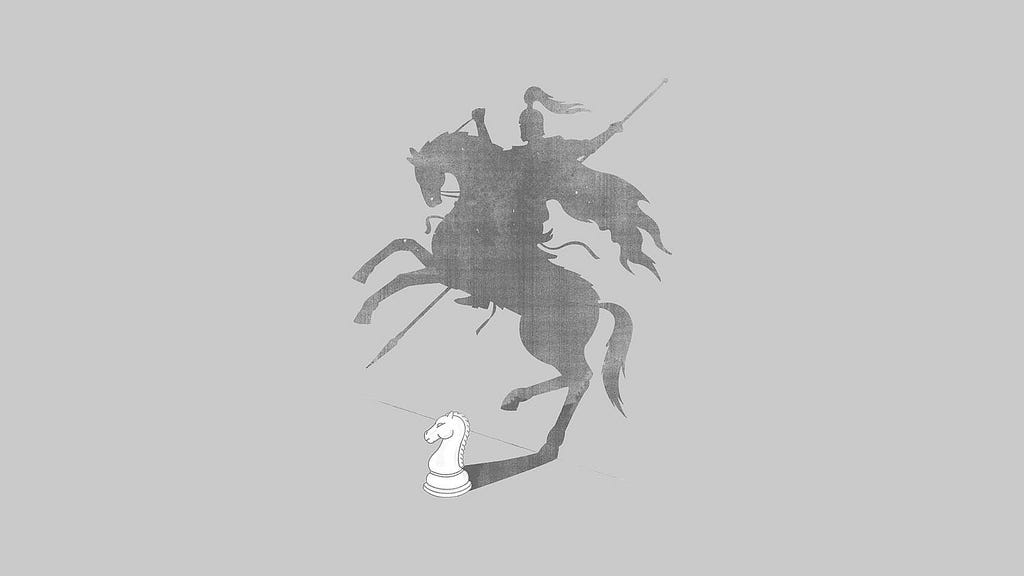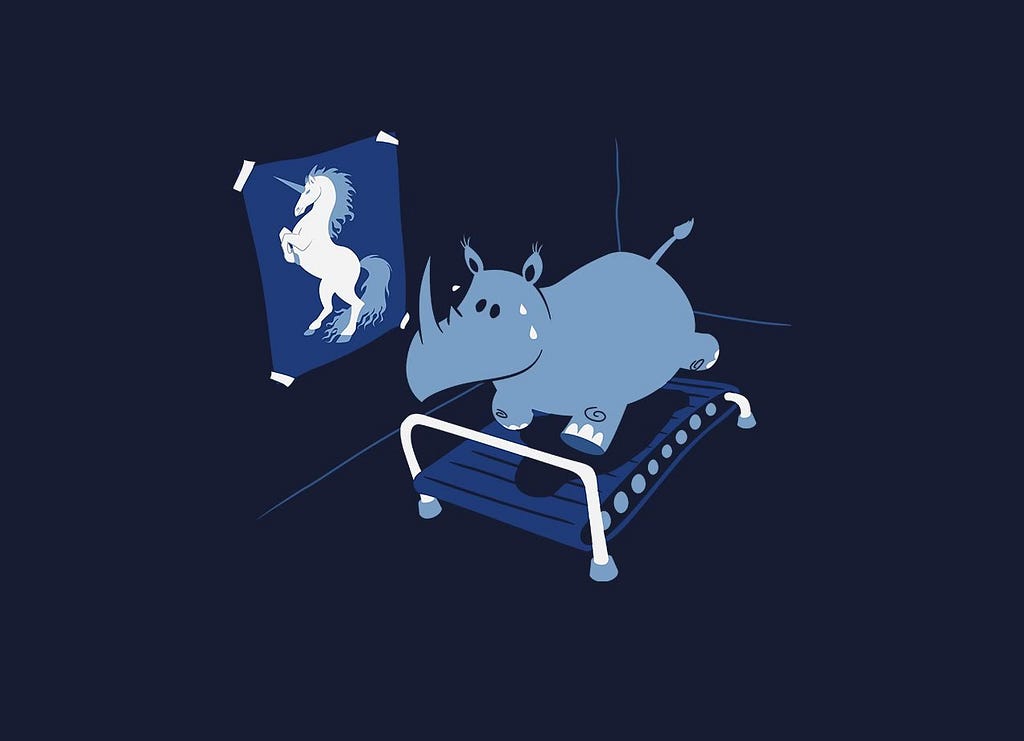“Don’t stop playing just because you’ve grown old, or you’ll grow old because you’ve stopped your play…. You’re never too old to be young…. When they tell you to act your age, they’re obviously lacking in expertise. Can’t they see it doesn’t matter unless you’re a bottle of wine or you’re a piece of cheese? So when those twilight years smile down like diamonds upon you, please remember when you think you’ve done it all, you’re gonna always find something new.” — Zoe Lewis
“Are you getting a Christmas jumper, Dad?”, asked my son innocently. “Well, I am definitely not getting it now,” I chuckled. The truth is, it wasn’t a Christmas jumper, it was just the type of jumper I never wore before. Perhaps I was just showing my age?
The Innovation Show is a reader-supported publication. To receive new posts and support my work, consider becoming a free or paid subscriber on our Substack here.
This exchange, seemingly mundane, stayed with me. It came to mind recently as I researched our guest on The Innovation Show, the mother of positive psychology, Harvard Professor of Psychology, ellen langer. It touches upon the societal expectations of age-appropriate behaviour and attire, inadvertently unearthing the psychological impacts of ageing. Should there be age-appropriate clothing? Should older men wear stereotypical “old-man clothes”?
It turns out that thinking “age-appropriate” thoughts age us. A study conducted by ellen langer with her then-students Jaewoo Chung and Laura Hsu demonstrates this. In their research testing mind-body unity, they explored cues that can prime health-related effects such as cues around clothing.
The research uncovers a fascinating correlation: individuals who regularly don uniforms, embodying a sense of timelessness and uniformity, tend to live longer. This discovery challenges the conventional wisdom surrounding “age-appropriate” clothing and suggests that our mental state can indeed manifest in our physical health. This was research inspired by Ellen’s now famous study called, “The Counterclockwise Study”.
Counterclockwise

“When you change the way you look at things, the things you look at change.”― Max Planck
The study replicates the essence of Langer’s original 1979 experiment by engaging a group of older adults, aged 75 and above, in a unique 1-week retreat near Milan, Italy. This retreat is no ordinary getaway; it is a carefully orchestrated throwback to 1989, designed to mentally transport participants back to their younger years. The environment is meticulously retrofitted to reflect the late 1980s, from the decor to the social activities available, encouraging participants to live as if they were in that era once again. This intervention, structured as a randomised control trial, pits the ‘counterclockwise’ group against an active control group and a no-treatment group to rigorously assess the impact of this temporal shift on various health dimensions. Assessments were conducted at multiple stages: upon recruitment, immediately following the intervention, and then six and twelve months afterwards, covering medical, cognitive, psychological, and even perceived age appearance metrics.
This innovative approach seeks to uncover whether a shift in mindset can indeed reverse the effects of ageing, challenging traditional perceptions. Deepak Chopra further illuminates this concept by emphasising that while our cells exist in a perpetual state of the present, humans often find themselves ensnared by the past, resistant to change, and apprehensive about the future. This disparity between cellular activity and human mentality underscores a fundamental issue in our approach to ageing — a gap that not only affects individuals on a personal level but also permeates the corporate world.
What if this research offers a potential blueprint for rejuvenating not just individuals, but perhaps, by extension, organisations stuck in outdated self-perceptions?
Organisations, much like individuals, can become trapped in a cycle of outdated practices, rigid beliefs, and a fear of change. Corporate bodies get stuck in old habits, cling to stubborn beliefs, fear the future, and occupy mental states that are not in the now. The analogy drawn between the ageing process of cells and the stagnation within corporate structures highlights a critical insight. Just as individuals can rejuvenate themselves by adopting a more present-focused mindset, organisations too can revitalise their operations and culture by embracing change, challenging the status quo, and fostering an environment of continuous innovation.
Corporate Self-Talk

At IBM each morning, the sales team would gather to sing the company anthem to the tune of “Singin’ in the Rain”.
“Selling IBM, we’re selling I. B. M., What a glorious feeling, the world is our friend, We’re Watson’s great crew, we’re loyal and true; We’re proud of our job and we never feel blue. We sell our whole line, we’re there every time, To chase away gloom with our products so fine, We’re always in trim, we work with a vim, We’re selling, just selling, I. B. M.”
While such a morning ritual may feel slightly cult-like, it galvanised and aligned a team just before they went their separate ways for the day. It made the individuals feel part of something bigger than themselves.
In stark contrast, in many Global corporations, there is a distinct lack of meaning. Not that a company anthem is an answer, but a company WHY is truly compelling.
Think about what your company’s self-talk might be. What does your self-talk about your company sound like? Some may say things like “Sure nothing will ever change around here!”, “This place? We will never innovate”, and “The problem with this place is the people”. Such corporate mental chatter reinforces the unwanted reality. Unconsciously, the people in the company suffer from confirmation bias to confirm what they already think, they inadvertently reinforce it and even attract it.
No matter what, we should not add to the corporate problems. By complaining, we are adding to the problems. Understandably, so many people are “stuck”, they may have been institutionalised like a Shawshank prisoner, unable to get a role anywhere else. However, there is always the option to seek “True Meaning, A Why” in what a company does.
If the company does not have the wherewithal to define a resonant meaning, then we can do this at a departmental level, at a business unit level or on a personal level.
Our response to both perceived and real events amplifies dysfunctional organisations. At a personal level when you change your self-talk you have the power to change your life. At an organisational level, when you positively change your people’s self-talk, you can change your company. You change how your company is perceived and you change your future for the better.
Most companies set out to change their strategy, but the reality is you cannot change your strategy without changing how you think.
Here is that episode of The Innovation Show with Ellen Langer.
Part 2 is on the way soon:
Here is the latest of that series brought to you by Wazoku:
Counterclockwise Corporations was originally published in The Thursday Thought on Medium, where people are continuing the conversation by highlighting and responding to this story.